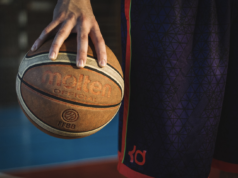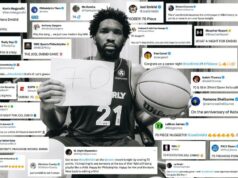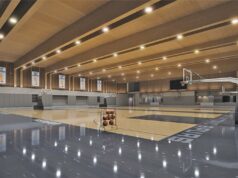 Project Spurs writers sound off on the addition of Theo Ratliff.
Project Spurs writers sound off on the addition of Theo Ratliff.
Michel De Leon
Everyone knew after the Richard Jefferson trade and signings of Marcus Haislip and Antonio McDyess that the Spurs were not done.
With the bi-annual exception in hand, the Spurs went shopping, and came back home with Theo Ratliff.
So aside from now having a trillion bigs on the roster, what does this mean for the Spurs.
It means they bring in another aging player at the tail end of his career, but it also means the Spurs finally have a legit center on their roster, something I was hoping would be addressed this offseason.
Before I go on about Ratliff’s affect on the Spurs, lets get down to the nuts and bolts first.
Ratliff is a 14-year NBA journeyman who’s spent time with Detroit, Philadelphia, Atlanta, Portland, Boston and Minnesota. His best season came in 2000-01 with the 76ers. That year he averaged 12.4 points, 8.3 rebounds and a monstrous 3.7 blocks per game.
Last season, in a return to Philadelphia, The 6-10 Ratliff showed that he can still be an imposing force in the paint, averaging one block per game in just 12.6 minutes, something no other Spurs big man aside from Tim Duncan was able to do last season in more minutes.
With Duncan, Antonio McDyess, Ian Mahinmi, DeJuan Blair, Matt Bonner, and Marcus Haislip already signed to contracts, what does this mean for Ratliff and more importantly what does it mean for the Spurs rotation next season.
If Ratliff can do what he did for Philadelphia in very limited minutes, I don’t see a problem with the Spurs playing him about the same, or maybe increasing them to 15 a night.
A few seasons back, Ratliff was on my wishlist of bigs I always hoped the Spurs would pick up. Now it’s a few seasons later and he’s a few years older and injury-prone, but I still think having a shot blocking center like Ratliff is a good addition. I can see him playing next to Tim Duncan in clutch situations when the Spurs need stops.
Some questions that automatically arise are if this may hurt DeJuan Blair’s minutes and how exactly Pop is going to manage seven bigs. I can see Marcus Haislip and Ian Mahinmi starting out the season on the injured list with McDyess, Duncan, Ratliff and Blair playing a majority of the minutes in the rotation, while Bonner gets scrap minutes at both forward spots.
All Ratliff has to do to get in the good graces of Spurs fans is to rebound and block shots. While Ratliff is not the Marcus Camby-caliber center we’ve been coveting, he can certainly fill the role.
He also seems like a perfect fit with the Spurs off the hardwood as he’s very active in community service and he’s known as one of the NBA’s good guys.
And it doesn’t hurt that this good guy is currently ranked 18th on the All-Time NBA Shots Blocked list.
David Thiessen
It seems that the Spurs are not done remaking the roster. The addition of Ratliff gives the Spurs seven big men. They started the offseason with three.
Before you get too excited and remember the Ratliff of eight years ago, the one who averaged 12 points, 8 rebounds and 3 blocks, consider that the Ratliff of today has only played in 74 games over the past three seasons. Last year he appeared in 46 games with the Philadelphia 76ers and averaged 1.9 points, 2.8 rebounds and 1 block in 12.6 minutes. For you stat geeks out there, he had a PER of 11.2, a TRB% of 13.3 and a DRtg of 104.
To me, this move makes sense and it does not make sense at the same time. Yes, I know that sentence itself might not make sense, but follow me here.
I recently looked at the big men the Spurs had during their championship teams to see what they preferred and how this year’s group compares (yes, shameless plug. Part one, Part two, Part three). One thing I noticed was that the rebounds and blocks contributed from the power forward and center positions has dropped steadily over the past decade. The past few years the Spurs have really had only one shotblocker – Tim Duncan.
For this reason it makes sense that the Spurs would sign Ratliff. He is a big body (6’10”) that can defend centers, block shots and rebound. While his averages are low, his per-36 minute numbers of 2.9 blocks and 8 rebounds are good. The Spurs have always valued veterans who are hungry for a ring and are okay with playing a few minutes a game, chipping in a block, a few boards and six fouls. They also value the locker room presence these veterans bring and the leadership they can provide to younger players. Ratliff can still provide a block a game in limited minutes and some hard fouls against the Bynum’s and Howard’s of the league. He can also teach Ian Mahinmi and DeJuan Blair about rebounding and blocking shots. The Spurs were definitely missing that veteran big man off the bench. For all those reasons this move makes sense.
On the other hand, it does not quite fit with the direction the Spurs were going. This was a season of reloading and getting younger. Notice I’m not saying rebuilding but reloading. They brought in Haislip, Blair and Mahinmi to improve their back up big men, and I think they did. Those three can provide skills, namely athleticism and hustle, that past Spurs teams have missed. With Ratliff in the mix, somebody is left out. Why sign Haislip to be the 12th man if they really wanted a veteran shotblocker? It’s like they signed Ratliff out of habit because they had not signed anybody over 35 recently. In the end, what’s more valuable, a 36-year-old shotblocker with a history of injuries, or a 22-year-old full of athleticism and potential? While Ratliff might be more sound than Mahinmi or Blair now, giving the rookies minutes will pay off more come playoff time.
Also, this gives the Spurs 15 players under contract, which is the maximum. Typically they have one or two spots open so they can move players around from the Austin Toros or to sign somebody mid-season.
Ultimately, I think this means another move is to come. The Spurs now have seven big men under contract (Duncan, McDyess, Bonner, Blair, Mahinmi, Haislip and Ratliff), and there simply are not enough minutes for all of them. This means a trade is probably in the works, likely for a perimeter player to solidify the bench. Of the players listed above, Mahinmi and Bonner have the most trade potential; Mahinmi because he is young, athletic and still full of potential; Bonner because he has an expiring contract and can shoot threes.
Personally, I hope Bonner is the one to leave. Pop has fallen in love with big men who can shoot threes, but it just has not worked since Robert Horry. A package of Bonner and Michael Finley might attract a team looking for expiring contracts, which seemingly every team is.
If the Spurs do succeed in trading Bonner, then this move makes sense. It would mean replacing one veteran big with another and also providing more minutes for the developing rookies. If no move happens in regards to the Spurs bigs, then the signing of Ratliff does not make sense. Seeing as how the Spurs work in complete secrecy, I’ll hold off on passing judgment just yet.





